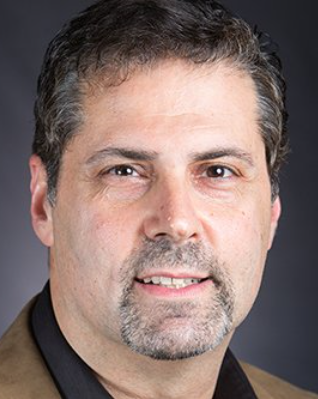Technicolor’s Alan Stein: Integration of Over-the-Top and Over-the-Air Programming Creates Need for Robust HDR Features in ATSC 3.0 Standards
LAS VEGAS – April 24, 2017—NAB 2017—As Android TV and other OTT offerings converge with OTA broadcasts, it is important to have a robust, comprehensive SDR/HDR delivery solution that can manage the complexity of multiple formats and networking environments, says Alan Stein, Vice President of Technology Development and Standards at Technicolor, in a podcast interview for journalists.
Broadcasters around the globe want to incorporate state-of-the-art systems and capabilities into their next-generation systems and expect the upcoming ATSC 3.0 broadcast standard to play a big part in those efforts. South Korea is adopting ATSC 3.0 as its next-generation broadcast standard and is actively working to have ATSC 3.0 systems, including High Dynamic Range (HDR) capabilities, on the air by the 2018 Winter Olympics, which the country is hosting.
Broadcasters around the globe want to incorporate state-of-the-art systems and capabilities into their next-generation systems and expect the upcoming ATSC 3.0 broadcast standard to play a big part in those efforts. South Korea is adopting ATSC 3.0 as its next-generation broadcast standard and is actively working to have ATSC 3.0 systems, including High Dynamic Range (HDR) capabilities, on the air by the 2018 Winter Olympics, which the country is hosting.
ATSC 3.0 is a suite of broadcast standards for transmitting IP packets over the air. Most of the standards are now in the final stages of completion, and it’s expected that mature and commercial ATSC 3.0-compatible products will be unveiled at NAB 2017.
ATSC 3.0 is internet-compatible in a way that original HD over-the-air transmissions weren’t. Gone are arcane, broadcast-only protocols, and in place are standards leveraging internet protocol delivery. ATSC 3.0 brings IP video over the air. Audio and video are sent in separate streams, so an operator can deliver programming featuring several languages, for instance. And some of those alternate language audio streams could come via a hybrid (over-the-top) path. ATSC 3.0 was designed from the ground up to support broadcast plus broadband, aka hybrid broadcast/broadband TV.
ATSC 3.0 is internet-compatible in a way that original HD over-the-air transmissions weren’t. Gone are arcane, broadcast-only protocols, and in place are standards leveraging internet protocol delivery. ATSC 3.0 brings IP video over the air. Audio and video are sent in separate streams, so an operator can deliver programming featuring several languages, for instance. And some of those alternate language audio streams could come via a hybrid (over-the-top) path. ATSC 3.0 was designed from the ground up to support broadcast plus broadband, aka hybrid broadcast/broadband TV.

In addition to the targeted broadcasts and HDR capability, there’s also the potential for robust interactive functionality. One remaining challenge will be ensuring that consumers who have TVs that work only with standard dynamic range (SDR) video don’t get left behind as broadcasters migrate to HDR. What’s needed is an approach that can unify the SDR/HDR experience, and Technicolor’s HDR solution does just that.
To read the entire Q&A or listen to the podcast interview visit: http://thefuturetrust.technicolor.com/article/the-future-…
Journalists and analysts are free to pull quotes from this Q&A feature with attribution in media and market reports. For more details and context, contact: Lane Cooper +1 323 817 7547 Lane.cooper@technicolor.com
Andre Rodriguez +1 323 817 6716 andre.rodriguez@technicolor.com
Jayne Garfitt Proactive PR +44 7788 315587 jayne.garfitt@proactive-pr.com
Photo: https://www.prlog.org/12635432/1
To read the entire Q&A or listen to the podcast interview visit: http://thefuturetrust.technicolor.com/article/the-future-…
Journalists and analysts are free to pull quotes from this Q&A feature with attribution in media and market reports. For more details and context, contact: Lane Cooper +1 323 817 7547 Lane.cooper@technicolor.com
Andre Rodriguez +1 323 817 6716 andre.rodriguez@technicolor.com
Jayne Garfitt Proactive PR +44 7788 315587 jayne.garfitt@proactive-pr.com
Photo: https://www.prlog.org/12635432/1
